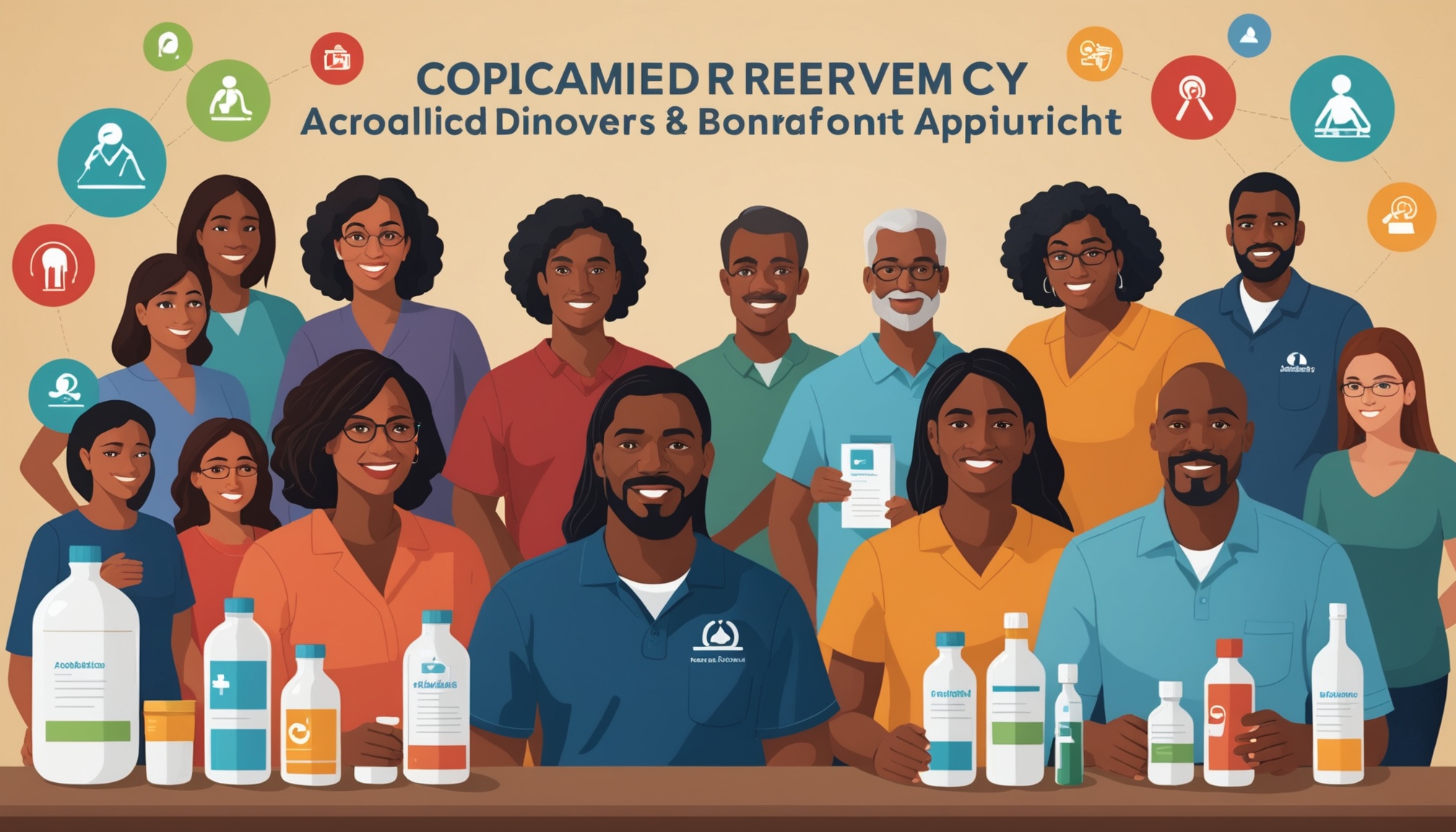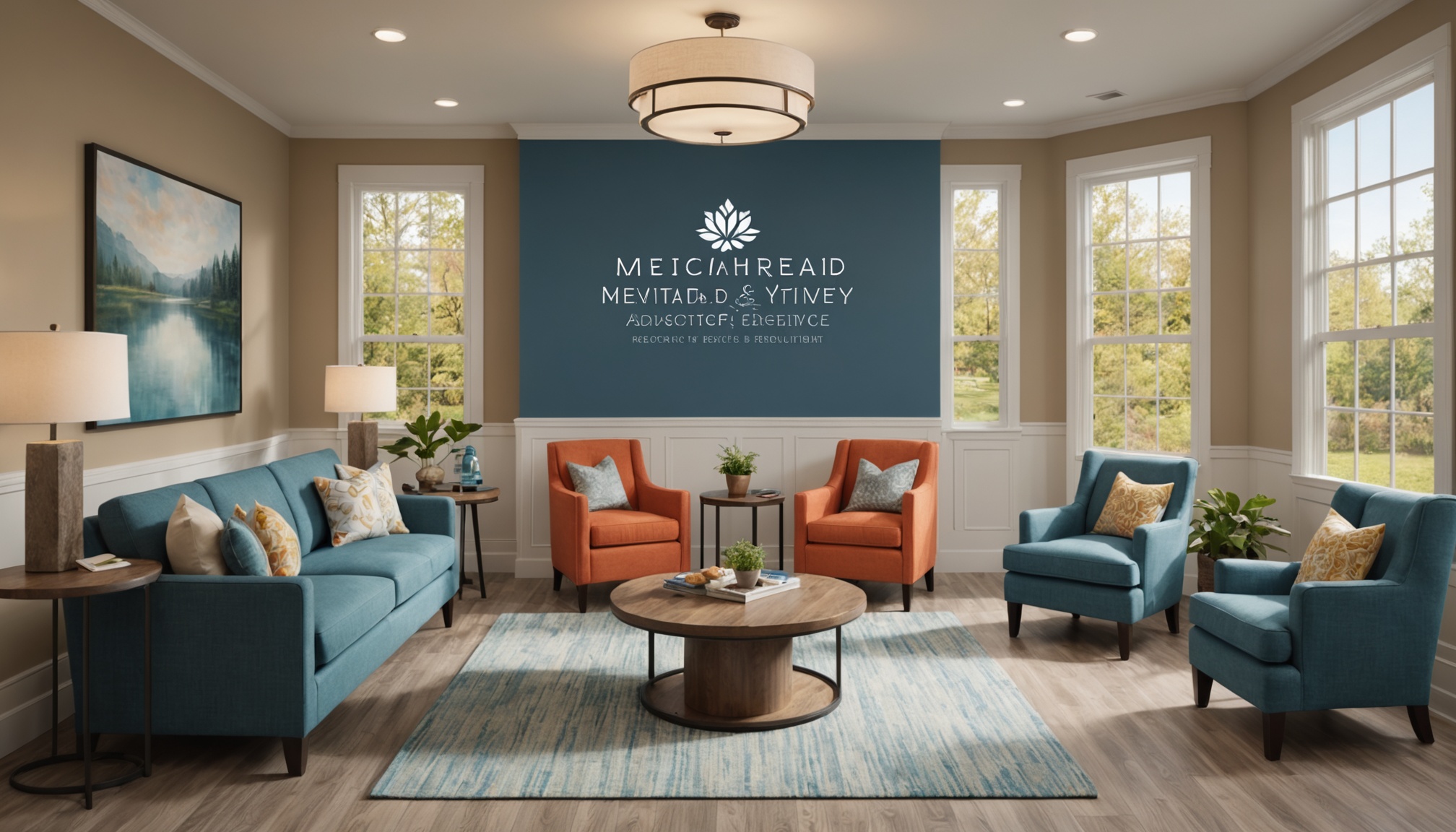
Medicaid Coverage for Substance Use Treatment
Access to affordable substance use treatment is crucial for those struggling with addiction. Medicaid plays a pivotal role in this access, especially for individuals facing challenges related to substance use disorders.
Behavioral Health Services in Medicaid
Medicaid is the largest payer of behavioral health services in the United States, efficiently helping millions of Americans with substance use disorders (SUD) Medicaid.gov. Within many states, behavioral health services have been incorporated into Medicaid State Plans, Managed Care Waivers, and Section 1115 Demonstrations. This inclusion enables essential coverage for a range of treatment options, significantly impacting lives across various demographics.
Medicaid covers both outpatient and inpatient services, including an array of treatment options such as individual and group therapy, detox programs, and medication-assisted treatment (MAT). Additionally, it supports recovery housing, comprehensive assessments, and case management, ensuring a holistic approach to care tailored to each patient’s unique needs.
| Service Type | Coverage |
|---|---|
| Outpatient Therapy | ✔️ Includes counseling and group sessions |
| Inpatient Rehabilitation | ✔️ Covers facility stays for treatment |
| Detoxification Programs | ✔️ Assists medically supervised detox |
| Medication-Assisted Treatment | ✔️ Access to medications for addiction |
| Recovery Housing | ✔️ Provides stable living environments |
Impact of ACA Medicaid Expansion
The Affordable Care Act (ACA) expansion of Medicaid has significantly increased access to substance use treatment services. By extending coverage to more individuals, the ACA has made life-saving medications, such as Naloxone, readily available. Moreover, it covers essential treatments for opioid, alcohol, and nicotine use disorders Center for Children & Families.
This expansion helps individuals who may have previously been ineligible for Medicaid, allowing them to receive comprehensive care needed for recovery. As of now, around 21% of Americans enrolled in Medicaid benefit from these services, reinforcing the importance of Medicaid in the fight against substance use disorders Center for Children & Families.
Medicaid not only supports traditional treatment methods but also funds innovative solutions aimed at better outcomes. For instance, Medicaid focuses on improving transitions from incarceration and supports community reentry for individuals with substance use disorders. By emphasizing preventive measures, Medicaid strives to reduce recidivism and promote long-lasting recovery Center for Children & Families.
Finding the right addiction treatment can feel daunting, but plenty of options are available that accept Medicaid. Programs such as addiction treatment centers that accept Medicaid, rehab programs that take Medicaid, and outpatient rehab that takes Medicaid can provide the support needed to start the road to recovery.
Medication-Assisted Treatment (MAT)
Medication-Assisted Treatment (MAT) is a vital component of substance use treatment covered by Medicaid. It offers a pathway for recovery by combining the use of medications with counseling and behavioral therapies. This approach is particularly effective for managing cravings and preventing relapse for those struggling with addiction to alcohol, opioids, and stimulants.
Medicaid-Approved Medications
Medicaid covers all FDA-approved medications for the treatment of opioid use disorders. This coverage includes medications such as buprenorphine, methadone, and naltrexone, which help reduce cravings for opioids and prevent relapse. Additionally, naloxone, a life-saving medication that can reverse the effects of an opioid overdose, is included in the preferred drug lists of 38 states plus the District of Columbia (Center for Children & Families).
Here is a summary of common Medicaid-approved medications for substance use treatment:
| Medication | Purpose |
|---|---|
| Buprenorphine | Reduces cravings for opioids |
| Methadone | Helps maintain recovery from opioids |
| Naltrexone | Blocks effects of opioids; aids in reducing alcohol dependence |
| Naloxone | Reverses opioid overdose effects |
For additional options in substance use and addiction recovery, consider checking medication assisted treatment that accepts medicaid.
Cost Savings and Treatment Benefits
Treating individuals with medications for alcohol or opioid use disorders under Medicaid has demonstrated significant cost savings. By effectively managing addiction with MAT, there is a notable reduction in hospitalizations, emergency department visits, and the need for outpatient care centers (Center for Children & Families).
In monetary terms, MAT can lead to lower healthcare costs and improve overall health outcomes. For example, in addition to pharmaceuticals, comprehensive treatment programs typically include withdrawal therapy and behavior therapy, significantly aiding in maintaining the recovery process and preventing future relapse (Mayo Clinic).
Medicaid’s role in covering medication-assisted treatment not only enhances accessibility to care but also supports families striving for healthier futures. If you are interested in finding a suitable program, explore options such as rehab programs that take medicaid or specific intensive outpatient program that accepts medicaid for tailored support.
SAMHSA Initiatives
SAMHSA (Substance Abuse and Mental Health Services Administration) plays a significant role in promoting addiction recovery and ensuring access to treatment services through various initiatives. This section explores two key initiatives: the State Opioid Response Programs and the National Survey on Drug Use and Health.
State Opioid Response Programs
The State Opioid Response (SOR) program focuses on addressing the opioid crisis by enhancing access to treatment and recovery services. Recently, SAMHSA awarded more than $45 million in new supplemental funding to SOR program recipients to specifically target sober or recovery housing among young adults (SAMHSA). This funding aims to support individuals in recovery by providing stable housing options, which are crucial for sustained recovery efforts.
Additionally, the Department of Health and Human Services (HHS) provided over $1.5 billion in FY25 continuation funding awards for both the State Opioid Response and Tribal Opioid Response grants. This financial support underscores the importance of ongoing efforts to combat addiction and offer comprehensive treatment options.
Through these programs, individuals seeking help for substance use disorders can access vital resources, including addiction treatment centers that accept Medicaid and recovery support services.
National Survey on Drug Use and Health
The National Survey on Drug Use and Health (NSDUH) is another critical initiative led by SAMHSA. The 2024 survey results, recently released by SAMHSA, cover experiences with mental health conditions, substance use, and the pursuit of treatment in the U.S. (SAMHSA). This comprehensive survey provides valuable data that helps policymakers, researchers, and treatment providers understand the current landscape of substance use and addiction.
The insights gained from the NSDUH can inform strategies to enhance treatment accessibility and effectiveness, ensuring that programs align with the needs of individuals seeking help for substance use disorders. For those exploring rehab programs that take Medicaid, this data serves as a foundation for identifying and addressing gaps in treatment services within the community.
SAMHSA’s initiatives are essential in promoting recovery and ensuring access to effective treatment options. By leveraging funding, resources, and data, SAMHSA helps individuals and families navigate their recovery journeys, connecting them with necessary services and support.
Accessible Recovery Services
Medicaid’s Role in Providing Care
Medicaid is an essential resource for individuals struggling with substance use disorders. It is the largest payer for behavioral health services in the country, ensuring that both children and adults receive the necessary care and support. This coverage is crucial for various substance use treatments, including outpatient rehab, partial hospitalization programs (PHP), and medication-assisted treatment (MAT) options.
By covering a wide range of services, Medicaid helps alleviate financial barriers that often prevent individuals from seeking help. Programs supported by Medicaid also focus on early prevention and intervention, which can lead to better long-term outcomes for those affected by substance use challenges. This approach includes services such as counseling, therapy, and community-based recovery support, allowing you to receive comprehensive care tailored to your needs. For assistance in finding appropriate services near you, consider looking at addiction treatment centers that accept medicaid.
Recovery Housing Support
Recovery housing plays a critical role in the rehabilitation process. Medicaid-approved recovery housing provides safe, supportive environments for individuals in recovery, facilitating transitional living and promoting sober lifestyles. This type of housing can help reduce the chances of relapse and provide a more structured environment as you work through your recovery journey.
With Medicaid’s support, recovery housing often includes services such as group therapy, counseling for addiction, and access to recovery resources. These essential services are designed to help you build a solid foundation for a life free from substance use. By utilizing these resources, you can improve your chances of successful recovery and reintegration into the community.
To explore your options for recovery housing supported by Medicaid, check out medicaid approved recovery housing. You can also find additional resources tailored to your needs by searching for rehab programs that take medicaid or outpatient addiction counseling medicaid accepted.
Treatment Options for Substance Use Disorders
Diagnosis and Treatment Criteria
When you seek help for a substance use disorder, the process typically starts with a diagnosis. Most mental health professionals utilize the criteria outlined in the Diagnostic and Statistical Manual of Mental Disorders (DSM-5), published by the American Psychiatric Association. This framework helps in identifying the severity of the substance use disorder and determining an appropriate treatment path.
Medication and Therapy Choices
Substance use treatment covered by Medicaid encompasses a range of options designed to meet the unique needs of individuals facing addiction to alcohol, opioids, or stimulants. Here are the key elements commonly involved in effective treatment programs:
| Treatment Type | Description |
|---|---|
| Withdrawal Therapy | This is often the first step, helping you safely manage withdrawal symptoms as substances leave your body. |
| Behavior Therapy | These therapies focus on changing harmful behaviors related to substance use and developing coping strategies. |
| Self-Help Groups | Programs like Alcoholics Anonymous (AA) or Narcotics Anonymous (NA) provide peer support for ongoing recovery. |
| Medication | Various medications help manage cravings, withdrawal symptoms, or treat co-occurring mental health disorders. |
| Ongoing Treatment | Continual support to help prevent relapse, including counseling and regular group sessions. |
Medications play a crucial role in your recovery journey. Options for opioid addiction treatment include:
- Buprenorphine: Reduces cravings and withdrawal symptoms.
- Methadone: A long-acting opioid used to prevent withdrawal and reduce cravings.
- Naltrexone: Helps block the effects of opioids and reduces the urge to use.
- Buprenorphine and Naloxone Combination: This combined medication helps prevent misuse while managing withdrawal and cravings (Mayo Clinic).
In cases of opioid overdose, naloxone can be administered to temporarily reverse the effects of opioid drugs, providing critical time to seek medical help (Mayo Clinic).
Engaging in ongoing treatment is essential for maintaining your recovery. This often includes periodic counseling sessions, participation in self-help groups, and regular group therapy sessions to support your continued progress. If you are exploring drug rehab that accepts Medicaid or alcohol rehab that takes Medicaid, these options will be available to you, facilitating a comprehensive approach to recovery.
State-Specific Medicaid Initiatives
Indiana’s Section 1115 Waivers
In Indiana, significant strides have been made to expand access to substance use treatment through the implementation of Section 1115 waivers. Federal approval was granted in February 2018, allowing for the expansion of coverage for inpatient stays related to opioid use disorder (OUD) and other substance use disorders (SUDs) for individuals aged 21 to 64 at qualified facilities (Indiana Medicaid).
This waiver encompasses a comprehensive range of SUD treatment services available to Indiana Health Coverage Program (IHCP) members under Traditional Medicaid as well as various managed care programs, including Healthy Indiana Plan (HIP), Hoosier Care Connect, Hoosier Healthwise, and Indiana PathWays for Aging. By broadening the treatment options available, Indiana aims to better meet the needs of individuals seeking recovery from substance use issues.
An additional waiver for Serious Mental Illness (SMI) was approved in December 2019, allowing Medicaid to fund acute inpatient stays for those diagnosed with SMI in Institutions for Mental Diseases (IMDs). This strategic blend of waivers ensures a more integrated approach to addressing both mental health and substance use challenges.
Coverage Expansion and Impact
The extensions of the SUD and SMI waivers, which will remain effective through December 31, 2025, are aimed at providing longer and more suitable inpatient stays. This approach is intended to foster stabilization for patients and facilitate successful transitions back into their homes and communities. Through these initiatives, Indiana is working to reduce reliance on emergency departments, ultimately lowering associated healthcare costs.
The impact of these initiatives on the community cannot be overstated, as they not only improve access to necessary treatment services but also promote a more comprehensive system for managing both addiction and mental health challenges. If you are exploring options for affordable addiction treatment, consider looking into addiction treatment centers that accept medicaid and the variety of rehab programs that take medicaid available in your area.







